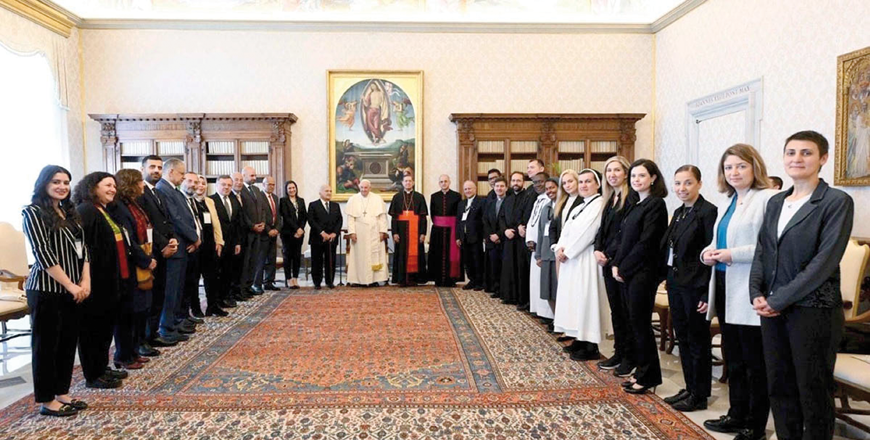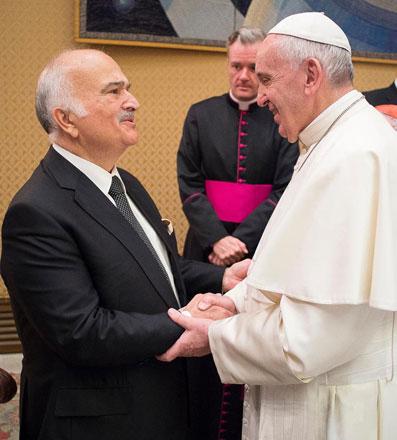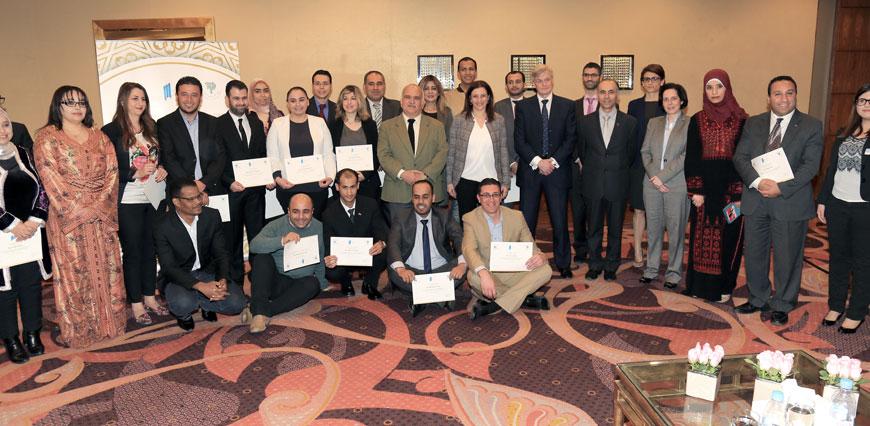You are here
Culture key to acceptance, diversity — Prince Hassan
By Rula Samain - Oct 06,2016 - Last updated at Oct 07,2016

HRH Prince Hassan attends a ceremony to launch the online Arabic version of the Adyan religious dictionary in Amman on Thursday (Petra photo)
AMMAN — Culture provides security and the base of human solidarity as well as social justice and acceptance of the other, according to HRH Prince Hassan.
Speaking at the launch of an online Arabic version of the Adyan religious dictionary on Thursday, Prince Hassan, who chairs the Royal Institute of Inter-Faith Studies (RIIFS), said that adhering to cultural independence helps Arab minds accept and respect the other, and eventually leads to coexistence.
The era of information is a trade-off between greater intelligence but less wisdom, said the prince, who added that young Arabs should be addressed in their mother tongue — Arabic.
According to its online cover, the Adyan Dictionary, first published in French in 1984, was under the management of Cardinal Paul Poupard, president of the Pontifical Council for Culture and the Pontifical Council for Interreligious Dialogue, and reviewed by Michel Sabbah, archbishop and Latin patriarch of Jerusalem from 1987 to 2008.
Deputising for Cardinal Poupard was Monsignor Khaled Akasheh, head of the Office for Relations with Islam at the Pontifical Council for Inter-Religious Dialogue, who said that the dictionary is a tool for knowledge, thought and dialogue at a time when social, political and religious uprisings are taking Arab societies towards unknown futures.
He said having the dictionary in Arabic gives space for more openness on the Arab identity, quoting Patriarch Michel Sabbah in his opening letter in the dictionary.
Akasheh said that the two-volume dictionary is aimed at exposing and respecting all religions and cultures in an objective manner.
“The Adyan Dictionary addressed Muslims and Christians alike, and the non-Arabs who speak Arabic in order to know each other more and bring us closer in doing good for humanity,” he added.
From Lebanon, Nayla Tabbara, the director of the Adyan Institute, said that societies can only unite through accepting diversity.
“People use so often the term ‘respecting the other: the followers of other religions’ while they do not know anything about the other or his/her religion, and the reason is not only because they are shy to ask, but also because of the lack of authentic resources they could rely upon, and hence comes the importance of Adyan Dictionary.”
The event was organised by RIIFS, a non-profit, non-governmental organisation that provides a venue for the interdisciplinary study of intercultural and interreligious issues with the aim of defusing tensions and promoting peace, according to its website.
RIIFS Academic Adviser Amer Alhafi, told The Jordan Times on the sidelines of the event that the mere fact that there is an Arabic translation to a “huge” work to help expose religions to others is a step forward.
“Religions are becoming the issue recently, unfortunately in a negative way; the dictionary will narrow the gap between followers of different religions and truly help them know and understand the other through scientific studies of religions.”
Related Articles
AMMAN — HRH Prince Hassan, chairperson of the Royal Institute for Inter-Faith Studies' (RIIFS) board of trustees, presided over the sixth co
AMMAN — Human dignity must be the highest priority above all else, HRH Prince Hassan, the chairman of the Royal Institute for Inter-Faith St
AMMAN — The shared value among all humans is ethics, while extremism, which is not limited to a certain religion, is an unethical phenomenon



















